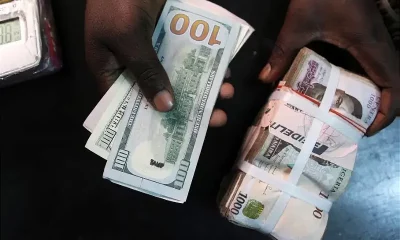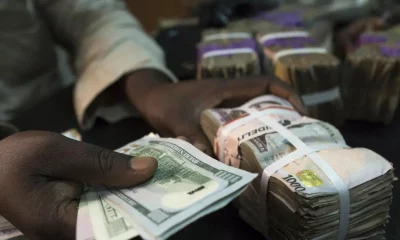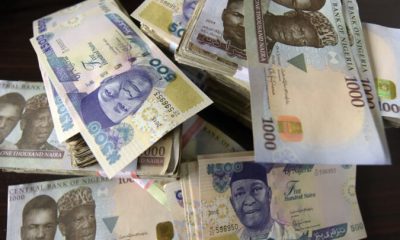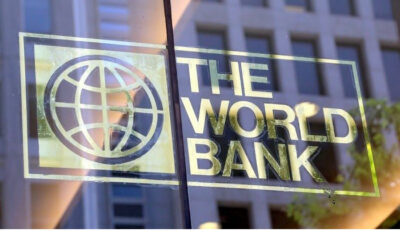Business
Naira among Africa’s worst currencies, falls by 40% – World Bank
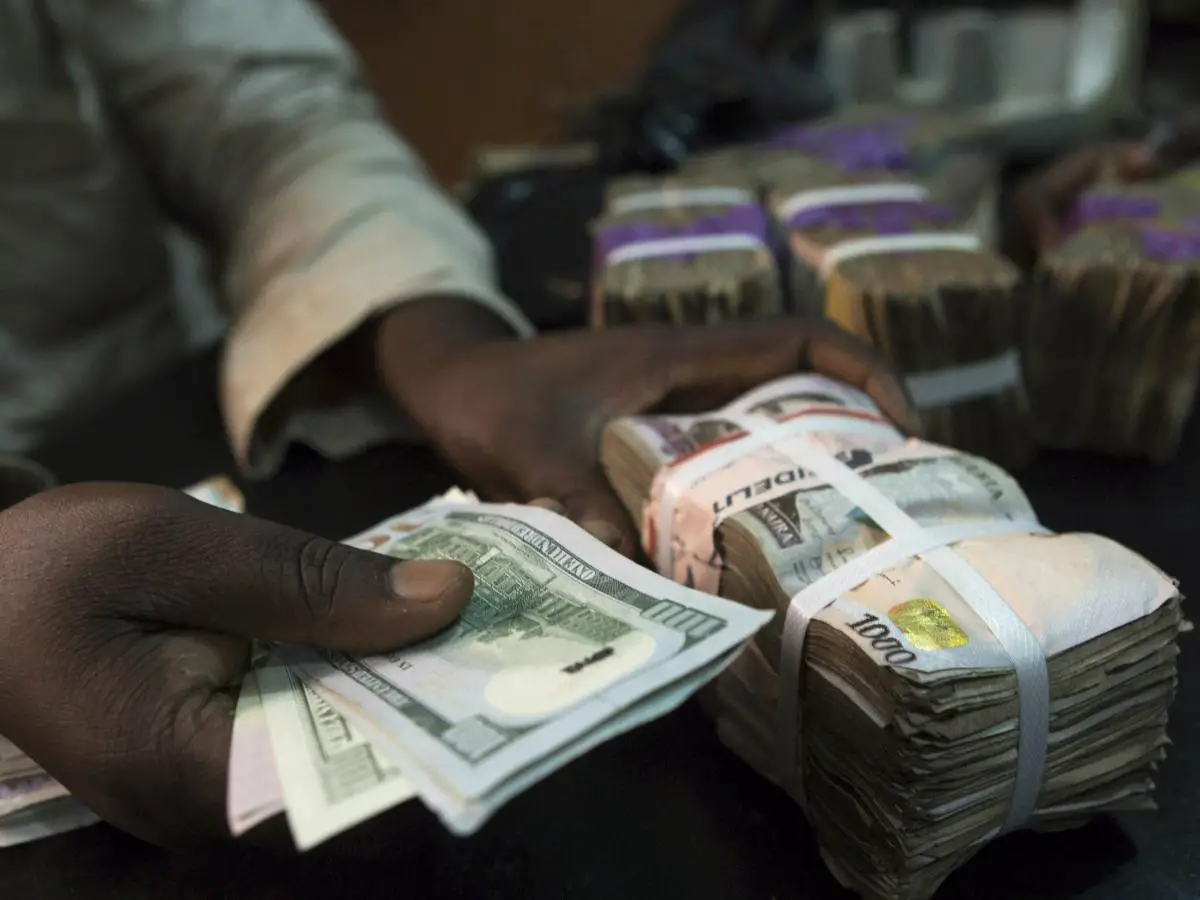
The Nigerian naira is among the worst-performing currencies in Africa, the World Bank has said.
It noted that the currency weakened by nearly 40 per cent against the US dollar since a mid-June devaluation.
The global bank explained in its report titled, ‘Africa’s Pulse: An analysis of issues shaping Africa’s economic future (October 2023 | Volume 28).’
It stated that, “So far this year, the Nigerian naira and the Angolan kwanza are among the worst performing currencies in the region: these currencies have posted a year-to-date depreciation of nearly 40 per cent.
“The weakening of the naira was triggered by the central bank’s decision to remove trading restrictions on the official market. For the kwanza, it was the decision of the central bank to stop defending the currency as a result of low oil prices and greater debt payments.”
Other currencies with significant losses so far in 2023, according to the World Bank, included South Sudan (33 per cent), Burundi (27 per cent), the Democratic Republic of Congo (18 per cent), Kenya (16 per cent), Zambia (12 per cent), Ghana (12 per cent), and Rwanda (11 per cent). It noted that parallel exchange market rates are also compounding inflationary problems for some countries in the African region.
In June 2023, the Central Bank of Nigeria directed Deposit Money Banks to remove the rate cap on the naira at the official Investors and Exporters’ window of the foreign exchange market, and allow the free float of the naira against the dollar and other global currencies. Since then, the naira had fallen from N473.83/$ to around N800/$ officially.
Highlighting the widening difference between the parallel and official exchange rates of the naira, the bank stated that this had been the case from March 2020 until June 2023.
It said the parallel rate premium increased to 80 per cent in November 2022, and then to about 60 per cent in June 2023, as the Central Bank’s interventions to restrict foreign exchange demand and keep the exchange rate artificially low were met with declining FX supply from oil revenues.
The unification and liberalisation of the exchange rates in June 2023 allowed the NAFEX rate to converge to the parallel one, closing the gap, it said.
It added, “However, resistance toward the increasing pressure on the Nigerian naira coupled with limited supply of FX at the official window has led to the reemergence of the parallel market premium.”
Nigeria’s growth rate would decelerate from 3.3 per cent in 2022 to 2.9 per cent in 2023, the Washington-based bank highlighted.
It stated that the country’s oil production had remained below OPEC+ quota amid capacity issues and lower international oil prices and while non-oil economic activity, particularly industry and services still supported growth, policy actions to remove fuel subsidies and unify the exchange rates might be weighing on these activities in the short term.
The World Bank noted that activity in Nigeria’s manufacturing and services sector contracted in August. “Weak business confidence and rising input costs are driving the contraction of activity,” it said. It stresses business confidence appears to have weakened in Nigeria.
Commenting on the recent reforms of the new administration of Bola Tinubu, the global bank disclosed that purchasing power of households was expected to suffer in the short term.
It said, “The incoming Tinubu administration implemented a series of reforms that included the removal of fuel subsidies and the devaluation and unification of the exchange rate system. Petroleum prices have more than tripled since the subsidies were lifted at the end of May.
“The naira has weakened by nearly 40 per cent against the US dollar since the mid-June devaluation. Although these measures are intended to improve the fiscal and external accounts of the nation, their inflationary effects in the near term can erode the purchasing power of households and weigh on economic activity.
Business
Seplat Energy celebrates a decade of Dual Listing with Bell Ringing Ceremony at Nigerian Stock Exchange
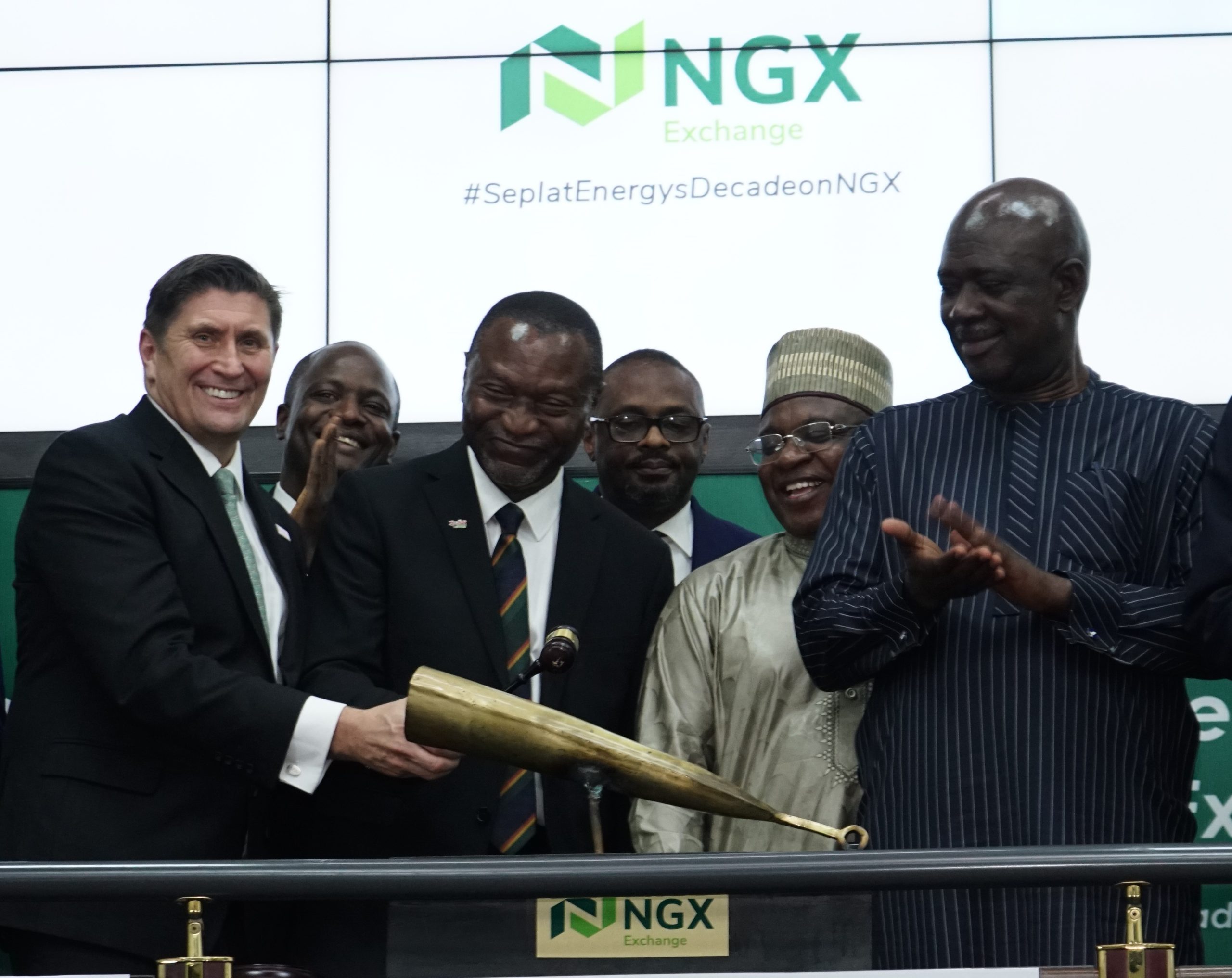
[L-R: Mr. Roger Brown, CEO Seplat Energy Plc; Mr. Temi Popoola, Group CEO, Nigerian Exchange (NGX) Group; Mr. Udoma Udo Udoma, Board Chairman, Seplat Energy Plc; Mr. Jude Chiemeka, Ag. CEO, NGX; Alhaji (Dr.) Umaru Kwairanga, Group Chairman, NGX Group; Sen. Heineken Lokpobiri, Hon. Minister of State for Petroleum Resources (Oil), at the NGX Closing Gong Ceremony to mark a Decade of Listing of Seplat Energy on the NGX and the London Stock Exchange … on Tuesday]
The Nigerian Exchange (NGX) reverberated with the jubilant sound of the bell as Seplat Energy PLC, a leading independent indigenous energy company, celebrates a significant milestone – a decade of its dual listing on both the Premium Board of the Nigerian Exchange (NGX) and the Main Market of the London Stock Exchange (LSE). This commemorative event, attended by esteemed representatives from Seplat Energy, the NGX, the Nigeria government, and other institutional partners, marks a decade of strategic partnership and commitment to excellence in the energy sector.
During his speech at the anniversary, Mr. Roger Brown, CEO, Seplat Energy, expressed delight over the feat, reiterating Seplat Energy’s commitment to leading Nigeria’s energy transition, adding that the power of indigenous companies is to bring growth and prosperity to their home countries and the people. “One example of how Seplat Energy is making an enduring difference to Nigeria and host communities where we operate is that nearly $50m had been invested by our Joint Venture partnerships in communities since our inception to date,” Brown said.
“Truly, Seplat Energy has delivered significant value by enhancing strategic, operational and financial achievements in 10 years as a listed company,” he added.
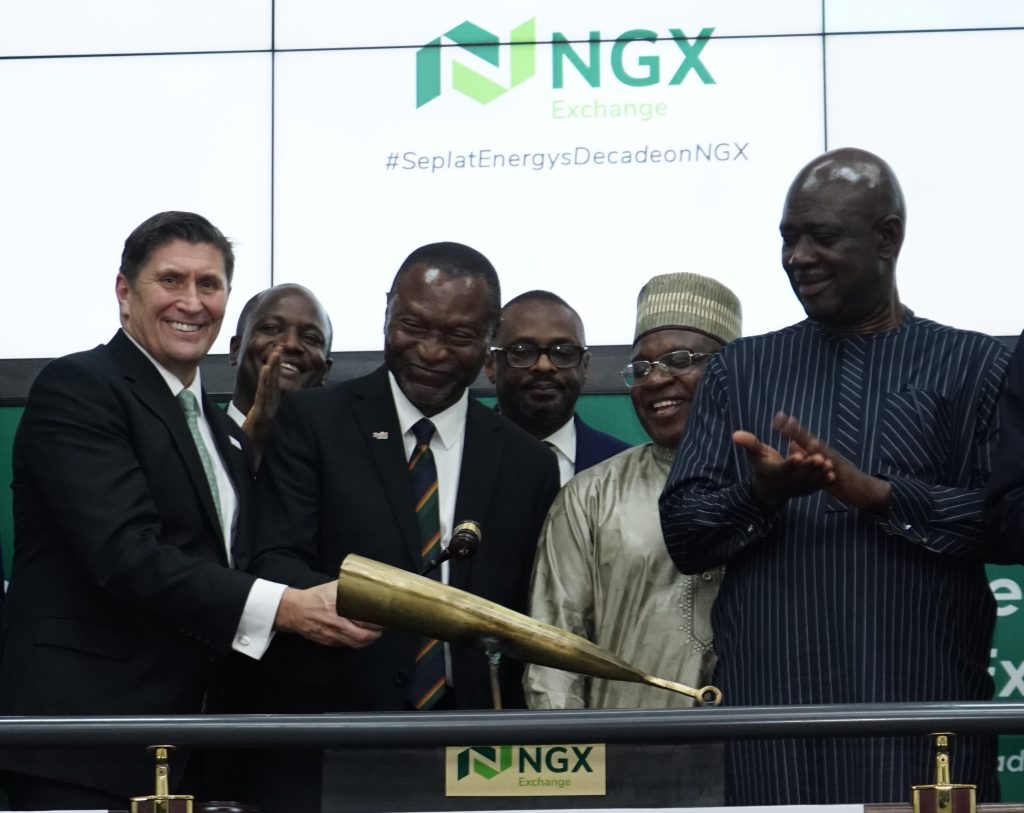
Sen. Heineken Lokpobiri, Hon. Minister of State for Petroleum Resources (Oil); Alhaji (Dr.) Umaru Kwairanga, Group Chairman, NGX Group; ; Mr. Udoma Udo Udoma, Board Chairman, Seplat Energy Plc; Mr. Roger Brown, CEO Seplat Energy; and Mr. Bello Rabiu, Senior Independent Non-Executive Director, Seplat Energy, lead other Directors and Management of Seplat Energy, at the NGX Closing Gong Ceremony to mark a Decade of Listing of Seplat Energy on the NGX and the London Stock Exchange … on Tuesday
In his comments, Mr. Temi Popoola, CEO, NGX Group, emphasized the significance of Seplat Energy’s decade of dual listing stating, “If we were to look back to our market and tried to find landmarks, the last major landmark you will find in the last ten years is this transaction that we are celebrating today, and the market is very grateful for that”.
Congratulating Seplat Energy on this milestone, in his welcoming remarks, Alhaji (Dr.) Umaru Kwairanga, NGX Group Chairman, highlighted the importance of partnerships between the NGX and companies like Seplat Energy in driving economic growth and development stating that “Seplat’s journey symbolises resilience, innovation, and a commitment to excellence, making them a beacon of corporate governance and operational expertise. Seplat Energy has emerged as a leading indigenous energy company, deeply integrated into Nigeria’s economic landscape and the NGX Group remains committed to supporting companies like Seplat Energy as they drive economic growth and contribute to our nation’s prosperity”.
Reflecting on the significance of the decade of dual listing, Mr. Udoma Udo Udoma, Board Chairman, Seplat Energy remarked, “Seplat Energy is committed to driving Nigeria’s transition to sustainable and affordable energy, harnessing its power to improve lives by transforming the economy. We have ambitious goals. We are investing in Nigeria. We will support the federal government’s energy transition policy, and we will partner with FG in whatever area they want us to do so. That is our commitment. We will grow Seplat while also maintaining the highest standard of corporate governance”.
Also commending Seplat Energy on the decade of listing, Jude Chiemeka, Acting CEO, NGX stressed the importance of the capital market in helping companies raise funds and creating wealth for all, stating that “Seplat Energy was listed at 576 Naira at listing and yesterday it closed at 3,370 which is an increase of over 484%. The figures show that in the last 10 years, the company has paid out $575m in dividend payments to shareholders in Nigeria and London where they are also listed, so this company has given investors a huge opportunity to really participate in wealth creation. Reports show that Nigeria would be among the top 20 countries in the next 25 years, and I think Seplat is poised to be one of the institutions driving growth, prosperity, and inclusion in our nation”.
Also gracing the closing gong ceremony was Sen. Heineken Lokpobiri, Minister of State, Petroleum Resources (Oil), who gave kudos to Seplat Energy on their laudable achievements while also assuring of the Federal Government’s commitment to providing support to the company. “I am happy to be part of today’s celebration and Seplat’s exceptional performance in the last ten years and as Minister of State, Petroleum Resources, I assure that we will partner with Seplat to expand their investments, not only for the benefit of its shareholders, but also for Nigeria. The least the government can do anywhere in the world is to create an environment where companies like Seplat continue to thrive”.
Seplat Energy remains focused on driving value for its shareholders, pursuing strategic acquisitions, and championing sustainable practices in the energy sector, with ongoing projects such as the acquisition of Mobil Producing Nigeria Unlimited and the development of the ANOH Gas processing plant. The company’s diversified portfolio, including eight onshore and shallow water assets strategically located in the Niger Delta region, has enabled it to maximize hydrocarbon production while actively contributing to Nigeria’s energy security and economic development.
Seplat Energy’s robust gas portfolio, highlighted by the ANOH Gas processing plant project, underscores its pivotal role in Nigeria’s transition to gas. This aligns with Nigeria’s broader energy goals, promoting cleaner energy sources, reducing reliance on traditional fossil fuels and driving a greener and more sustainable energy landscape in Nigeria.
With commitment to corporate governance, corporate citizenship, and making significant corporate social investments, as reflected in its rigorous approach to performance assessment and its investment in community development initiatives, Seplat Energy is poised for continued success in the years to come.
Business
Naira Appreciates To ₦1,280/$ At Parallel Market
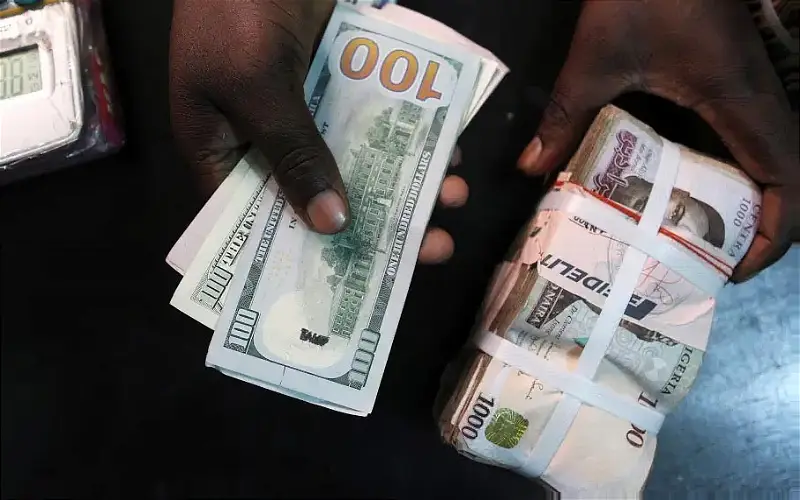
The naira, on Friday, appreciated to N1,280 per dollar at the parallel section of the foreign exchange (FX) market.
The current FX rate signifies a 5.19 percent appreciation from the N1,350/$ reported on March 27.
Currency traders in Lagos, also known as bureau de change (BDCs) operators, quoted the buying rate of the greenback at N1,260 and the selling price at N1,280 — leaving a profit margin of N20.
“The price of the dollar as well as other major currencies have been falling. It is affecting our business as some customers prefer to keep their currencies than change it with us,” a currency trader identified as Aliyu told TheCable.
At the official section of the FX market, the local currency depreciated by 0.69 percent to N1,309.39/$ on March 28 — from N1,300.43/$ on March 27.
Meanwhile, the Central Bank of Nigeria (CBN), on March 29, said the economy recorded over $1.5 billion in foreign exchange (FX) inflow this month, indicating its monetary policy initiatives are effective.
The apex bank said the naira is headed in the right direction, and the administration of Yemi Cardoso, CBN governor, remains committed to ensuring the stability of the market and the appropriate pricing of the naira against other major currencies worldwide.
-
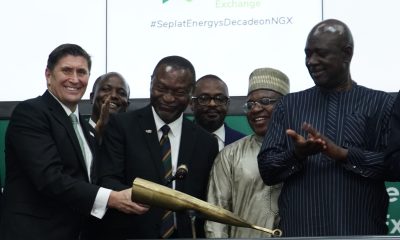
 Business3 days ago
Business3 days agoSeplat Energy celebrates a decade of Dual Listing with Bell Ringing Ceremony at Nigerian Stock Exchange
-

 News3 days ago
News3 days agoBDCs now buying dollar at ₦980 — ABCON President
-

 Metro3 days ago
Metro3 days agoOsun Poly Student, Olanrewaju Olatona killed by hit-and-run one-way driver
-
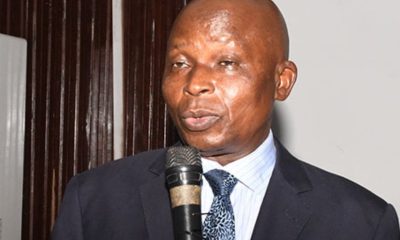
 Headline3 days ago
Headline3 days agoFagbemi warns against obstructing EFCC from performing its lawful duty
-

 News3 days ago
News3 days agoLASG’s maize palliative impactful, says poultry association chair
-

 News3 days ago
News3 days agoWoman killed while crossing road in Anambra

